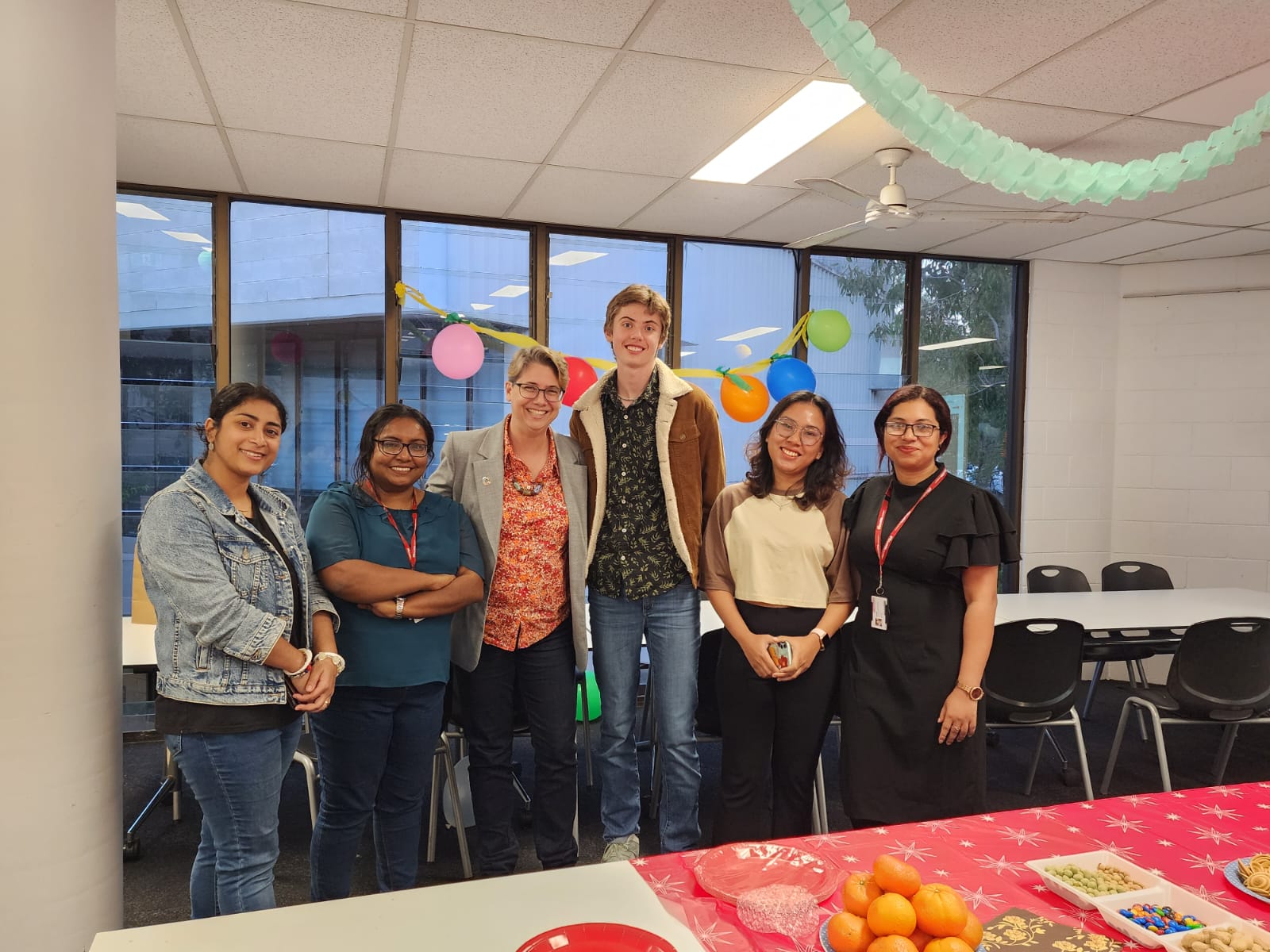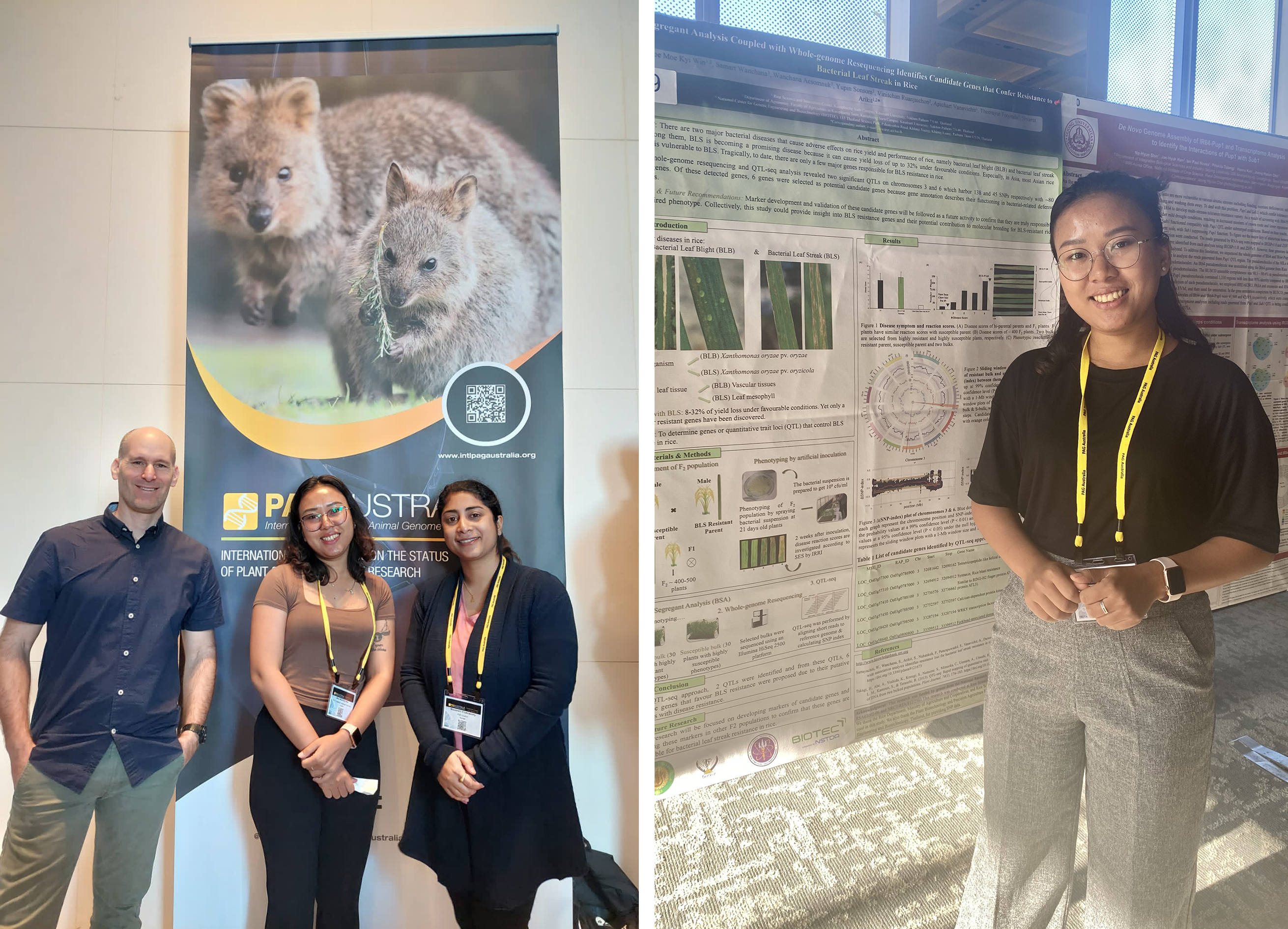

Identification of novel rice resistance genes to bacterial leaf streak disease
November 7, 2024

The Crawford Fund QLD Committee supports targeted training and mentoring of overseas scientists and extension officers by experienced Queensland counterparts working on similar agricultural research challenges through their International Engagement Awards.
In 2023 three awards were announced, including one for Dr Ido Bar from the Centre for Planetary Health and Food Security at Griffith University who recently reported on the completion of the project to provide training to Ms Moe Moe Kyi Win from Kasetsart University Thailand in advanced crop and pathogen genomics and bioinformatics skills as part of a project titled, Identification of novel rice resistance genes to bacterial leaf streak disease through transcriptomic analysis.
Bacterial leaf streak of rice is a destructive disease that has high epidemic potential to high-yielding cultivars in both temperate and tropical regions, especially in Asia. This project aims to identify and characterise the genomic features underpinning bacterial leaf streak resistance and defence responses in rice to develop a strong foundation for future genomic-assisted breeding for disease resistance.
The work was achieved by Project Leader Dr Ido Bar from Griffith University (GU) training Ms Moe Moe Kyi Win, a PhD candidate and research assistant from the Rice Science Centre at Kasetsart University in advanced crop and pathogen genomics and bioinformatics skills.
“The training, undertaken at Griffith University, complements the significant work previously undertaken on rice breeding and genomics at Kasetsart University with Griffith University’s computing and bioinformatics resources and their application in crop pathogen genomic research,” said Dr Bar.
“From this project, the genomic features underpinning bacterial leaf streak resistance and defense responses in rice were identified through RNA-seq analysis and characterised to develop a strong foundation for future genomic-assisted breeding for disease resistance,” he said.

Dr Bar hopes that the use of a model crop such as rice (which has ample genomic resources and a curated annotated reference genome) will provide a proof-of-concept for the application of similar approach on “genomically orphan” crops grown in QLD, such as sugarcane.
The four outcomes of the project were identified by Dr Bar as:
- Collaboration between two universities (Kasetsart University and Griffth University) was initiated in the field of rice genomics, transcriptomic and pathogen interaction which also led to greater trust and joint beneficial outcomes including the exchange of knowledge, methodologies and the ability to develop new research programs between the two countries.
- A talented Thai PhD student/research assistant gained skills in advanced bioinformatics skills, RNA-seq, transcriptomic analysis, analysis of differentially expressed genes, data manipulation and handling of R language which can then be shared with her colleagues from KU.
- Differentially expressed genes related to rice resistance to bacterial leaf streak disease infection were found. And, interestingly, not only the genes that are responsible for BLS disease but also genes that are functioning for BLB disease resistance were differentially expressed in our dataset. These findings can be used as useful resources for future rice breeding programs for disease resistance as well as gene editing/manipulation and functional analysis.
- The pipeline and protocols used in this study can also be replicated for other crop species and pathogen species which are economically important for Queensland/Australia and Thailand.
“Moreover, these findings will be communicated to extend knowledge through a peer-review journal by 2024,” he said.
“The knowledge and approaches developed within this project will be applied to a range of crop diseases that have significant economic impact, including the bacterial leaf blight and leaf streak diseases in wheat and barley and the gumming disease and leaf scald of sugarcane, which are caused by very similar pathogens (Xanthomonas spp.),” said Dr Bar.
“The use of a model crop such as rice (which has ample genomic resources and a curated annotated reference genome) will allow highly accurate annotation of the genes involved in resistance to the disease towards genomic selection of elite resistant cultivars and will provide a proof-of-concept for the application of similar approach on “genomically orphan” crops grown in QLD, such as sugarcane. This will occur through collaboration with key researchers at Kasetsart University and Griffith University,” he said.
“Through this training and mentoring initiative, the collaborative relationship between the research teams from both countries has been strengthened. This will lead to greater trust and joint beneficial outcomes including the exchange of knowledge, methodologies and the ability to develop new research programs between the two countries,” he said.
“I would like to express my heartfelt thanks to Dr Ido Bar, the trainer and mentor in this project, for his patience and commitment to training a student with little prior bioinformatic skills. Thanks to that I gained skills in advanced bioinformatics analyses, RNA-seq, transcriptomic analysis, analysis of differentially expressed genes, data manipulation and handling of R language which I can share with my colleagues from KU and will be very useful for my future career,” said Miss Win.




